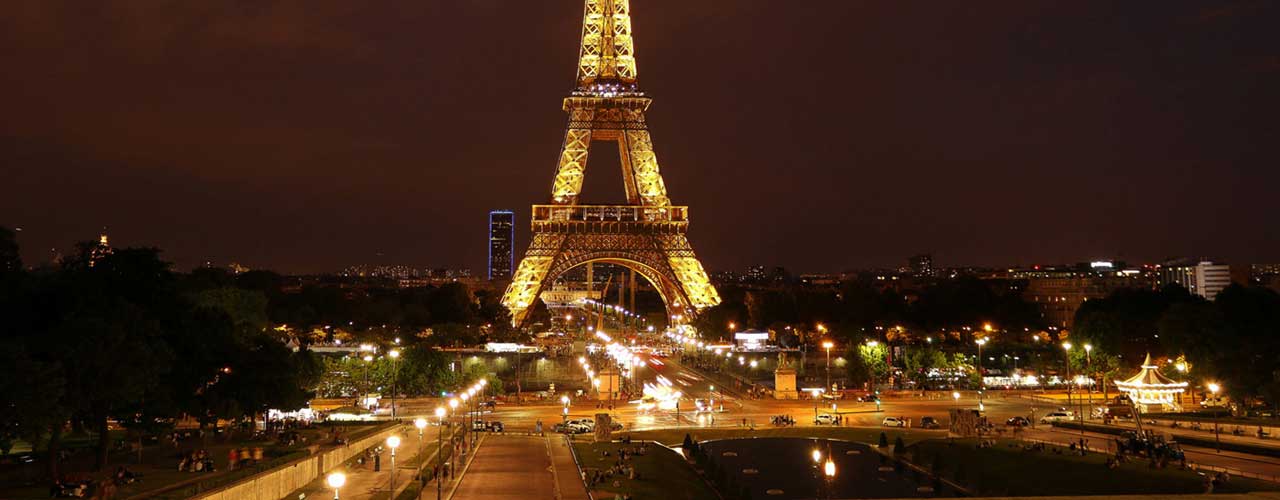Just before the attacks, my father had open-heart surgery at the Clinique Ambroise Paré in the Parisian suburb of Neuilly. A team of cardiological craftsmen cleaved his chest, separated his breastplate, mechanically circulated and oxygenated his blood, shut off his heart and lungs, cooled his heart, and stopped its beat. They removed his diseased aortic valve and replaced it with one fashioned of chemically treated bovine tissue. The hospital does this five times a day, and, according to Mathilde, the nurse, “We do not make mistakes.” This is civilization. Whatever we’re clashing with, “civilization” is not it.
I was oblivious to the first reports. My father was at last conscious and out of the ICU; I had taken the Métro back to my apartment, where I collapsed into a sleep so drugged and exhausted that I didn’t hear the sirens. When my brother called me, I knew from his voice that something was wrong. He quickly reassured me: “He’s fine. But there have been some terrorist attacks.”
Finally, a reason to check your email.
Sign up for our free newsletter today.
We spent the next week crossing the city to the cardiology ward. Every television was tuned to the news. The patients, hooked up to wires and tubes and catheters, lay in their beds and watched, doubly stunned by the lifesaving invasion of their bodies and the rape of their city. Walking down the wing, I heard the same sound echoing from every room—accounts of eyewitnesses accompanied by the steady beep-beep-beep of heart monitors. The nurses’ eyes, like those of everyone in Paris, were red-rimmed.
France is now under a State of Emergency. It is the first to be declared nationally since the 1961 Generals’ putsch. The National Front subsequently made major gains in the first round of regional elections. The authorities have been given the power to set curfews and forbid mass gathering; the security services may conduct house searches at any time without judicial oversight. Strict security checks are in place at all airports, train stations, and ferry terminals; border controls have been reestablished. The interior minister can, without a warrant, order house arrest for persons “whose activities are dangerous for security and public order.” I’ve lost count of the number of raids reported in the news—it is in the thousands—and the number of people taken into custody.
The government has written to the EU Human Rights Council announcing that it expects to violate various human rights guaranteed by the EU convention. It has also asked the Council of State if it would be legal to create detention centers for those under a “fiche S”—“threats to public safety or the safety of the State.” After every terrorist attack, we learn that the terrorists were “fiche S.” There are 20,000 people, apparently, who are so classified, but only 10,500 have been placed on the list because they’re radical Islamists. Former president Nicolas Sarkozy, the conservative rival of President François Hollande, has called for considering anyone who has looked at a jihadist website a jihadist. A leaked draft of proposals from the Interior Ministry, published in Le Monde, suggested blocking public Wi-Fi and banning anonymization software. The interior minister has reassured the public that this, at least, is not under serious consideration.
What happened seems unspeakable: people reach for the phrase ce qui s’est passé—the thing that happened. The defiantly jubilant Christmas lights are at odds with a steady, melancholy December rain and the omnipresent police and the troops clad in woodland camouflage. It’s clear where the troops came from: France has a formidable conventional military force; they’ve come from bases. It isn’t as clear where the flics are from—not just the men, but all the vehicles and equipment. Where were they before? They are everywhere: on foot, on motorcycles, in vans. Police vehicles, sirens screaming, scatter cars like small birds. The winos and petty drug dealers are nowhere to be seen. I cannot dispel every rumor, but let me assure you that the French police are armed—very—and that there is no neighborhood in Paris that they won’t enter.
None of us feels safer from terrorism for their presence, but at least no one is worried about normal urban crime. From that, we’ve never felt safer.
Photo by VP Photography

